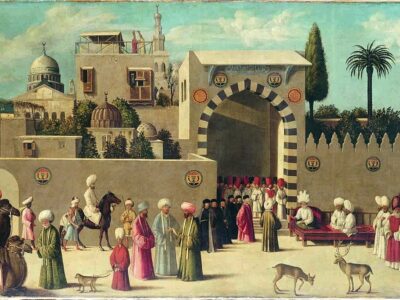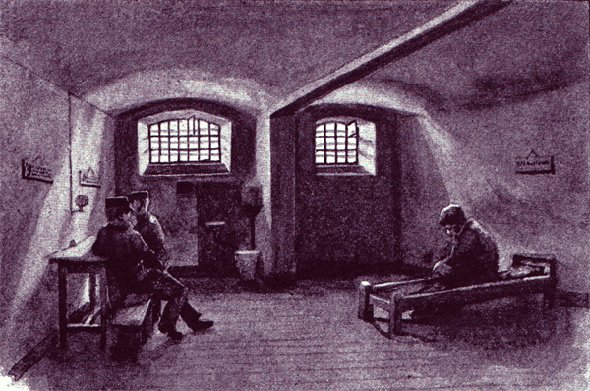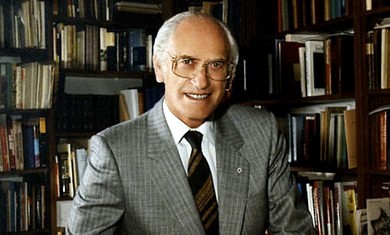From about 1840 to roughly 1900, one sort of Jewish immigrant was so familiar in North American cities that he was caricatured in novels, newspapers articles and comic strips.
According to the stereotype, he was a prosperous merchant, garbed in bowler hat, business suit, and thick moustache. He manufactured or traded in pianos, fine watches, clothing, cigars, dry goods or other commodities. His name was Oppenheimer, Rosenheim, Stern, Frankfurter or Goldschmidt; he was invariably Reform and highly assimilated; and he was of German origin, one of an elite cadre of gentrified German Jews to reach America before the massive influx of impoverished Russian Jews began in 1880.
Dubbed “Our Crowd” by American historian Stephen Birmingham, these early German Jewish immigrants were brilliant achievers. In the United States, their number included the Loebs, Kuhns, Gimbels and Guggenheims. In the musical sphere they were represented by the likes of Berlin, Rogers, Hammerstein, Hart, Kern and the Gershwins. In Canada their number included the Hart, Myers, Nordheimer, Rossin and Hirschfelder families.
The -heim and -heimer group of names (Bodenheimer, Fechheimer, Hoffheimer, Kuppenheim, Lowenheim, Pappenheimer, Wertheimer) were especially plentiful. So were names ending in -burg and -burger, -feld and -felder, -stein and -steiner, -thal and -thaler. Other names commonly ended in -auer, -bach, -baum, -dorf, -hof, -stadt, -wald and -wasser.
Many prominent German-Jewish families had taken on surnames long before required to by law. Frankfurt was apparently the only major Ashkenazic community where all Jews had adopted permanent family names long before the Napoleonic era. Old Frankfurt families like Zunz, Oppenheimer, Bing, Worms and Rothschild have been in continuous possession of their names since the 16th century.
Some names derived from house signs, family crests or animal symbols (Adler, Hecht, Rothschild, Strauss, Wolf). Some derived from cities (Berliner, Frankfurter, Hamburger, Posener), territories or states (Frank, Hess) or scenic-geographic features (Greenfeld, Rosenberg, Rosenthal).
Some names reflected occupational origins (Glaser, Goldschmidt, Schuster, Wechsler) while others derived from Hebrew personal, biblical or priestly names (Moses, Salomon, Levy, Kahn). A small number, likely assigned by government officials, fall into the category of ridiculous or derogatory names: Toronto genealogist Henry Wellisch has documented instances of Aftergeruch (backside smell), Hinterviertel (hindquarter), Jammerlapp (crybaby), Kotspritzer (mud splasher), Saumeier (pig farmer), Schwewelduft (sulphur smell), and others more offensive.
Decades ago, historian Georg Meyer-Erlach examined a list of 10,623 German-Jewish soldiers who had died in World War I, and ranked the names according to their frequency of occurrence. His findings appeared in Jüdisch Familien Forschung, a journal of Jewish family research published in Germany between 1925 and 1938. The top 20 names: Levy, Mayer, Cohen, Kahn, Stern, Wolff, Strauss, Rosenthal, Goldschmidt, Heymann, Lewin, Weil, Rothschild, Hirsch, Baer, Salomon, Rosenberg, Adler, Katz and Marx.
In America, however, as onomastic scholar Rudolf Glanz has documented, many German-Jewish families Americanized their names, turning Blum into Bloom, Goldschmidt into Goldsmith, Gutherz into Goodheart, Hecht into Pike, Marmelstein into Marblestone, Rindskopf into Reno, Sussengut into Seasongood. But not always did they obscure the genealogical trail when they did so.
In an article on “German-Jewish Names in America” (1970), Glanz related the case of David Feuerstein, a Michigan immigrant who took the name Flint in 1824, but later became known as David Gun to avoid association with a notorious horse thief. When a rich uncle died without a direct heir in the East Indies, Gun “was in great distress for he could not legitimize himself.” During a protracted lawsuit in Wayne County, Gun paid a fortune to lawyers in order to prove his rightful claim to the estate. ♦
© 2001







